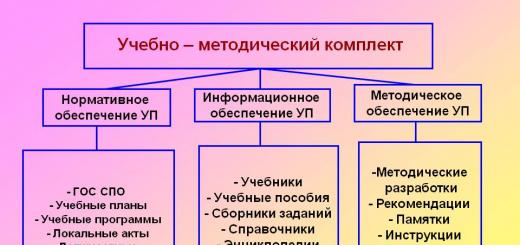Photo: Mikael Kristenson, Unsplash
Zillion.Reading:
“We turn on the charm according to the methods of the special services”
Disbelief in friendship, loneliness in big cities, lack of close relationships, deceptively comfortable communication on social networks, conflicts, stress from a crisis need to sell at all costs - former FBI agent Jack Schafer knows what to do with all this. He is far from the idea that friendship, sympathy, relationships and achieving goals in communication are a matter of luck. For many years he studied charm, body language and the laws of attraction. As a result, I understood the formula of friendship and tested it in different circumstances. Today on Zillion - synopsis of the book “Turning on charm using the methods of special services.”

John "Jack" Schafer
Doctor of Philosophy, professor, psychologist. Intelligence consultant and former FBI special agent. He devoted 15 years to counterintelligence and anti-terrorism work. Was an FBI behavioral analyst for 7 years. He searched for methods of recruiting agents, interrogated terrorists, and trained future agents in the art of interrogation and persuasion. Author of numerous articles and 6 books. Professor at the School of Law Enforcement and Criminal Justice at Western Illinois University.
Marvin Carlins
Professor of Management at the College of Business Administration at the University of South Florida. He received his PhD from Princeton University. Consults organizations around the world on effective interpersonal communication. He himself and co-authored 24 books, including 2 bestsellers.

About the book
The authors of the book “The Like Switch: An Ex-FBI Agent's Guide to Influencing, Attracting and Winning People Over” are John “Jack” Shafer and Marvin Carlins. Jack Shafer is a charming “polite man” in His work in the FBI gave him a lot of opportunities to learn how to split criminals without pressure, and sometimes even without words, recruit the right people, and solve family and everyday problems.
Shafer is confident: most communication problems can be solved if you act competently; friendship definitely exists (in case you are disappointed in it); creating close relationships is a matter of technique and bilateral willingness to work at it.
In general, this is a rather brutal book - it is written easily, but it will probably be emotionally difficult to read, because you will remember everyone you lost due to strategic and tactical errors in communication. But rather, even because you had neither strategy nor tactics. You and the other party were simply guided by momentary emotions and believed that it was “fate” or “not fate.” In fact, long and deep friendships are worth more than anger and disagreements - and to have close people in your life, you need to work on it. But most people do not even know how to set foot on the path of strong friendship - they are cut off when faced with difficulties during the obligatory period of the so-called “free fall”.
Shafer speaks about the formula of friendship and the laws of attraction without cynicism, he simply tells interesting stories from his agent and personal practice and explains why he managed not to scare off and recruit, easily get recognition, get rid of his daughter’s dubious boyfriends, get a drunk passenger off a plane and fly away before anyone else and in business class.
The book pays a lot of attention to communication on social networks and body language. Schafer believes that our communication often fails because we don't listen and see each other - we don't observe, we don't think about what is reasonable to say next, and we don't analyze body language. Usually people let communication take its course: they pick up nonverbal signals only on a subconscious level and react to them mechanically, without meaning. As a result, they do not use a huge layer of information, on which the development of relationships and the movement of the snake from “stranger” to “friend” or “enemy” depends every second.
Organizations like the FBI are designed to be effective problem solvers, so there is a lot to learn from them. By the way, read our conversation with psychologist, programmer and writer Denis Bukin, author of the book “Memory Development Using Special Services Methods” on Zillion.

In general - to everyone, just to try to build relationships with people in the future, and not look for some kind of ephemeral providence in them. Life is much simpler: everything has a cause and effect, and if you have “Brownian” communication, based on momentary reactions and denying psychological patterns, then the results are corresponding.
There are many points of application of this knowledge, depending on the needs: friendship, flirting, family relationships, raising children, sales, solving organizational problems and business problems, discreetly obtaining information, pickup, negotiations, recruiting, etc. Shafer and Karlins leave the ethical aspects to be dealt with independently - knowledge in itself is neutral.

Ideas from the book
- Cullen Hightower: "Friends are made among strangers." Friendship or enmity begins from the first second of contact.
- Charm solves problems better than anger. No one would have thought to decipher the abbreviation FBI as the Federal Bureau of Cordiality.
- The human species is programmed to find friends. But it has never been an easy or pleasant experience. Most people lose budding friendships when they give in to the natural period of “free fall.”
- Get into the habit of thinking about what you say. Words can become a mine in communication or turn sympathy into friendship and relationships for life.
- Long and deep relationships are available to you - this is not an accident or luck. You just need to use scientific knowledge and proven methods. Handle knowledge like a circular saw: don’t push or stop it from doing its job. Be natural, be yourself and practice. Friendship is a skill.
- Maya Angelou: “I learned that people will forget what you said and they will forget what you did, but they will never forget how you made them feel.” Talk in such a way that the interlocutor constantly has the opportunity to compliment himself. Whether you become friends or enemies is determined, in essence, by only one thing - whether the person likes himself in communication with you.
- Look into your eyes, raise your eyebrows, tilt your head. Now do nothing, calmly arouse curiosity in a safe environment.
- Strangers watching each other. While we go about our business, the brain continuously scans the environment to understand how to perceive those who appear nearby. If a stranger arouses your interest, this means that the brain chose him as interesting.
- People give each other signals all the time: obvious and veiled, hostile and friendly. This is clear information - and everyone unconsciously reads it. Don’t be surprised that they didn’t approach you if you turned away or gave you an “angry city look.” Learn body language.
- Do not explain or prove anything when a person is angry. He is simply not able to think rationally and make adequate decisions at this time.
- If you teach, allow for innocent mistakes to keep things fresh and encourage people to speak up.
- If you are presenting a project or startup, convince those who are skeptical. Resist the urge to appeal to supporters.
- People like to be remembered. Use “turn bridges”: start with the subject of a previous conversation and recall common jokes.
- How did Jan Carlzon bring Scandinavian Airlines System (SAS) out of its doldrums? He allowed staff to resolve issues with passengers directly.
- Benjamin Franklin: “He who has once done you good will be more willing to help you again than he whom you have helped yourself.”
- It's normal to want to open the emotional floodgates when you feel like you've found a friend. Slow down, use the Hansel and Gretel technique.
- Any relationship weakens over time - this is normal. But they can be refreshed and strengthened according to the formula of friendship.
- A nice person seems repulsive if he is friends with a group of unlikable people.
- Friends are the few who ask how you are doing and listen.
- Keep your ego in check. Dominance in communication violates the golden rule of friendship.
- A good salesperson creates the illusion of free choice for the buyer, but in reality imposes the choice he needs.
- Keep in mind: Direct questions make people wary.
- Let me finish my thought. If you don’t like what you hear, stop protesting. Maybe there is a rational grain there and both will be satisfied with a compromise?
- Henry Ford: “If there is a secret to success, it is the ability to understand another person’s point of view and look at the world through their eyes as if it were your own.”
- At the beginning of love, write sincere letters and put them in a transparent box with the inscription “In case of divorce, break the glass.”
- Everything you post about yourself on the Internet will remain there forever.
- Don't let virtual reality overshadow real connections.
What else will you learn
- How to increase your LQ (Likability Quotient) - likability quotient.
- What does the “golden rule of friendship” sound like?
- How to make almost anyone like you.
- How to find friends or pick up someone at a bar if you're shy.
- What to do if the relationship breaks down.
- What 4 components are included in the friendship formula.
- How to smoothly eliminate unwanted contacts without injuring the person.
- How to use the “search for common ground” technique.
- How to get attention before you even start talking.
- What are the Big Three friendly signals?
- How to use isopraxy.
- What are 7 tricks that allow waiters to get big tips?
- How to sell to those who tend to be introverted and extroverted.
- What is the "law of the rocky road"?
- How to properly present your idea to your boss.
- Why is it that every time you have your eye on a vacant parking space, the driver starts rummaging through the glove compartment.
How often do we complain to ourselves for not being able to approach the person we like and start a conversation? Or that he is not held in high esteem by his superiors precisely because of his isolation and silence? More sociable colleagues receive highly paid jobs only because they are able to charm management with their charm and eloquence. Want to take your personal or professional relationships to a higher level? Read the book by Jack Schafer and Marvin Carlins, “Turning on the Charm Using the Secret Service Technique,” and your dreams will come true.
Good personal relationships are available to everyone. This is not a matter of luck or chance. Those who have certain knowledge on this issue build harmonious interaction with others. The authors of the book “Turn on Charm Using the Secret Services Method” will teach you everything you need to know. After reading this psychological guide, your likability quotient will increase significantly. You will even be surprised how quickly and easily you will turn into a completely different person - open and sociable.
The main formula of friendship, derived by Jack Schafer and Marvin Carlins in their work, is equal to the combination of intimacy, intensity, frequency and duration. As you can see, there is nothing complicated in such a psychological equation. The authors also provide information about nonverbal signals emitted by a person. You will learn to read people like an open book... gestures, facial expressions of your opponent will give you more information about a person than what he says. The book “Turning on the charm using the methods of the special services” is equipped with illustrations, which will further facilitate the memorization of important information. The most important thing that people forget when talking is the ability to listen. It is those who have this quality in their arsenal who are considered smart, well-mannered people, it is easy and pleasant to be with them, because they are not fixated on their own person.
The book by Jack Schafer and Marvin Carlins, “Turning on the Charm Using the Secret Services Method,” will be useful for everyone. It is worth reading for those who have started working in a new team, who conduct sales training, who want to find love or improve personal relationships. Illustrative examples and methods will help you establish contact with various people, regardless of age, gender, or position in society. And don’t forget that one of the authors of this psychological manual is a former FBI agent who devoted more than 15 years of his life to the topic of counter-terrorism research. And who, if not an agent of such a powerful intelligence service, would not know how to exert psychological influence and convince other people.
On our literary website, you can download the book “Turning on the Charm Using the Secret Services Method” by Jack Schafer, Marvin Carlins for free in formats suitable for different devices - epub, fb2, txt, rtf. Do you like to read books and always keep up with new releases? We have a large selection of books of various genres: classics, modern fiction, psychological literature and children's publications. In addition, we offer interesting and educational articles for aspiring writers and all those who want to learn how to write beautifully. Each of our visitors will be able to find something useful and exciting for themselves.
Why do some people easily make friends, are successful in a team, receive promotions, build a career, while others, who do not lag behind the first in education and erudition, cannot boast of such success? What is this - luck, masterly hypocrisy or, perhaps, witchcraft? The authors of the book “Turning on Charm Using the Secret Services Method” believe that success in life depends on the ability to make a good impression on people. And this quality is not an innate gift, it is a skill that can be learned by mastering a special technique. Read the work of former FBI agent Jack Schafer and professor Marvin Carlins and become the first in all areas of life!
Article menu:
Briefly about the authors
– ex-FBI special agent, professor of psychology. Schafer has extensive experience in preparing counter-terrorism operations and developing recruitment scenarios. He trained special agents in techniques for influencing people. Today, Schafer heads the company Schafer and Associates, which works with special agents, law enforcement officers, and lawyers. Jack shares his knowledge and enormous experience with a wide audience in books, because he is convinced that the methods of the secret services are applicable in everyday life, when you just need to win over the HR manager at an interview or start a conversation with the girl you like.

– co-author of the book “Turning on Charm Using the Secret Services Method”, professor of management. Karlins has written 24 books (his “I See What You’re Thinking” is especially popular), published more than 200 articles in scientific journals, frequently appears on radio and TV, and also consults for world-famous companies.
What is the book about: a professional charm course

The book by Shafer and Karlins is a collection of rules, useful tips and practical recommendations, supported by scientific facts and real life stories. It teaches you to make a good impression on your interlocutor (regardless of how long you have known each other and in what setting your communication takes place), accurately recognize a lie, manage your own emotions, understand the behavior of others and literally read their thoughts.
The main advantage of this publication is its multi-directionality; it really suits a very wide range of people:
- people working in sales (both beginners and experienced personnel);
- hired workers in various fields to achieve better results and career advancement;
- ordinary consumers who want to receive quality services and decent service;
- parents and teachers to build healthy relationships with children;
- people who have been searching for a soul mate for a long time without success;
- everyone who wants to lead an interesting, active and successful social life.
The book is relatively small - it only has more than three hundred pages. It is written in a simple, friendly manner, not at all the way professors usually write. Thanks to the abundance of interesting life stories, “Turn on the Charm...” is read voraciously, like fiction.
From the book you will learn:
- how to gain favor with yourself;
- what is the formula of friendship;
- how to attract attention without saying a word;
- laws of friendship and attraction;
- psychology of intimacy;
- ways to establish and maintain long-term relationships;
- pitfalls of communication and friendship in the virtual world.
After reading Shafer-Carlins' book, you will certainly want to improve yourself further. We recommend that you look at our selections of the 10 best books on psychology and personality development and 10 books that will make you want to live. You will certainly find something interesting for yourself!
Operation “Seagull”: the story of one recruitment

This book is the fruit of many years of experience of FBI special agent Jack Schafer, and therefore, already in the first chapter, the author tells the story of one recruitment, which becomes an eloquent confirmation of how important the secret codes of charm are in building interpersonal relationships.
The main character of this story (here appears under the code name Chaika) worked as a diplomat. The task of Schafer and his team was to convert the diplomat to the side of the United States. Because Chaika was an experienced intelligence officer, the recruitment scenario required extensive preparation. For many months, Shafer’s team compiled psychological and social portraits of Chaika. They learned about the target’s disagreements with management, that he was promised a small pension, that he would like to move to the USA...
When the operation was launched, the American agent did not come into personal contact with Chaika for a long time. He became his shadow, but a friendly, understanding and... very charming shadow. The experienced officer immediately figured out the surveillance, but it did not fill him with fear; over the months he seemed to have gotten used to his silent companion, and therefore when the agent first made contact, his conversation with Chaika went very calmly, ended on a positive note and opened up the opportunity for further negotiations

The result of the operation was the recruitment of Chaika by the United States. The task was completed successfully and the key to this outcome was, first of all, a well-written script. The authors of the book tell this story in detail not for the sake of entertainment, thereby they lead the reader to an important conclusion - how important it is to win a person over even before the conversation begins. How drawing up a psychological portrait and correct assessment of the future interlocutor are important in choosing the desired behavior strategy. And the main thing is that the methods of the special services are applicable in practice. The authors prove this in all subsequent chapters.
The friendship formula and its application in real life

Friendship is by no means an unconscious feeling that arises on its own; the authors of the book note that it has a very real formula.
Friendship = Closeness + Frequency + Duration + Intensity
Let us consider in more detail the main components of this formula.
Under proximity understand the distance between you and the other person. In this case, the regularity of your appearances in the field of view of the object of proximity is important. In the case of Chaika, the American agent was in absolute proximity to the subject from the first day, but maintained a comfortable distance until the subject got used to it. For another person, a sense of personal security is very important. A minimal threat can disrupt communication and break trust forever.
Frequency is the number of contacts per unit of time, and duration, respectively, their duration. In the case of Chaika, both of these indicators were increasing. The agent increasingly appeared in the target's field of view and spent more time with him.
Intensity– maximum satisfaction of a person’s psychological and physical needs, regardless of the form in which your communication takes place – verbal or non-verbal. In the case of Chaika, the agent aroused the diplomat's curiosity. He was interested in finding out what kind of person he was and whether he could be of use to him, and since the FBI agent acted very sensitively, positive interest was not overshadowed by fear, panic and hostility.
Confirming that the friendship formula works not only in the case of recruiting foreign diplomats, the authors give as an example an everyday situation that will be closer and more understandable to the ordinary reader. Its main character, Philip, is a guy from a small town who has just moved to Los Angeles. Making new friends turned out to be not so easy when you are not a student and do not live in a dormitory. The specialist advised him to visit a bar. Philip's job was to regularly walk into the same bar, make brief eye contact with the regulars, and head to the bar.
Philip was fond of collecting marble crafts. It was decided to use his unusual hobby as bait. The guy brought with him several figures and a magnifying glass and began to examine them with interest. The bartender, who was supposed to come into contact with him on duty, became a kind of “conductor” between Philip and his potential friends.
The bartender actually asked the friendly young man what he did. The bar employee remembered their short but interesting conversation, so the next time he recognized Philip and accepted him as one of his own. Soon friendly relations began between them, he told other visitors about Philip’s hobby, thus the hobby became the starting topic for communication. The guy thanked the specialists, because with the help of this simple strategy he found friends in the big city.
As you can see, all ingenious is simple! This is just one of many scenarios that the authors clearly describe in their book. Read with enthusiasm, put these methods into practice and make your life better. It is very presumptuous to count on a lucky break!
We turn on the charm according to the methods of the special services, Jack Schafer and Marvin Carlins
5 (100%) 2 votesJack Schafer, Marvin Karlins
The Like Switch:
An Ex-FBI Agent's Guide to Influencing, Attracting, and Winning People Over
Published with permission from Touchstone, a Division of Simon & Schuster, Inc. and literary agency Andrew Nurnberg
Legal support for the publishing house is provided by the Vegas-Lex law firm.
© John Schafer, Ph.D. and Marvin Karlins, Ph.D., 2015
© Translation into Russian, publication in Russian, design. Mann, Ivanov and Ferber LLC, 2015
This book is well complemented by:
Robert Cialdini, Steve Martin and Noah Goldstein
Paul McGee
Susan Weinschenk
Mark Goulston and John Ullman
Mark Goulston
To my wife Helen, gifted with love, strength of character and, moreover, patience, which allowed her to put up with my eccentricities during the thirty years of our marriage.
Jack Schafer
To my wife Edith and daughter Amber. Thank you for being you, for what you have achieved, for the love that has enriched the lives of so many people.
Marvin Carlins
Introduction
How to gain favor with yourself
No one would have thought to decipher the abbreviation FBI as the Federal Bureau of Cordiality. I worked for this organization for twenty years as an agent specializing in behavioral analysis, and during these years I developed the ability to quickly assess people, understand their characters and develop a strategy for dealing with them. My job was to convince people to cooperate with the FBI against their home country, or to identify criminals and get them to confess, sometimes without uttering a single word. As a behavioral analyst, I developed a strategy to recruit spies and make friends out of sworn enemies. In other words, I acquired skills and created techniques that turned enemies of the United States of America into friends and willing spies for my country. In short, my task was to win people's sympathy.
The case of Vladimir (I changed the names and personal characteristics of the people mentioned in the book and sometimes created a character from several to make the examples more clear) perfectly shows what the essence of the matter is. Vladimir arrived in the United States illegally for the purpose of espionage. He was caught trying to steal classified documents from the Ministry of Defense. As an FBI Special Agent, I was assigned to work with him. At the first interrogation, he stated that he would not talk to me under any circumstances. In order to overcome the resistance of the arrested person, I began by simply sitting opposite him during interrogations and starting to read the newspaper. I would read for quite a long time, then fold up the newspaper, put it on the table and, without saying a word, leave the office. Day after day, week after week, I came for interrogation, read the newspaper, left it on the table and left, and Vladimir sat opposite with an indifferent look, handcuffed to the table.
For the next month we talked about everything except spying. Then, one fine day, Vladimir suddenly said: “I’m ready to talk about what I was doing.” He began to express his thoughts freely and frankly, not because he was forced to do so, but because he liked me and began to consider me his friend.
The interrogation technique I used with Vladimir may seem pointless. But in fact, I carefully planned my actions to get the arrested person to confess and cooperate with the FBI. In this book I will reveal my secret and explain how I won Vladimir's affection, and how, using the same technique, you can win the sympathy of almost anyone for a while or for life. I can do this because, as it turns out, the communication skills I developed for the purpose of gaining the friendship of potential agents and recruiting them can be just as effectively applied to establishing friendships at home, at work and in any other places and communication situations.
I must admit, at first I didn’t realize that my professional skills could be used in everyday life. It wasn't until late in my FBI career that this opportunity came to my attention. At the time, I was teaching young intelligence officers how to recruit agents. One day, before the start of the new semester, I arrived at work half an hour before class to prepare the classroom. To my surprise, there were already two cadets in the class. I didn't recognize them. They sat like exemplary students in the front row, with their hands on the table. This behavior of the cadets surprised me a lot: they rarely showed up for classes this early. I asked what happened, who they were and why they came so early.
– Do you remember Tim from the previous group? – asked one of the cadets.
“Yes,” I answered.
– A couple of weeks ago Tim and I were at a bar. He told us about your lectures on influencing and building trust.
“So what?..” I asked, still not understanding where he was going with this.
– Tim boasted that in class he learned how to pick up any girl.
“And we decided to test it,” continued the first. “We chose the first woman we could find who was sitting at the bar and suggested to Tim that without a word he invite her to sit at our table for a drink.
- And what did he do? – I asked.
“He accepted the challenge,” exclaimed the cadet. “We decided he was crazy and was taking on too much.” But after forty-five minutes the woman actually came up to our table and asked if she could sit in our company. We couldn't believe our eyes, but that's exactly what happened.
I looked at them searchingly.
– Did you find out how he did it?
- No! - one of them exclaimed, and then they admitted in unison: - We came to learn!
At first I felt bewildered and reminded them of our profession. I said that the purpose of the classes was to train cadets in intelligence skills, and not to train pickup truck masters. But after some thought, suddenly, to my own surprise, it dawned on me. As I thought about Tim's eccentricities, I realized that the methods used to recruit spies could also be used to win games of love. Not only that, but in a broader sense, this technique can be used in all cases where you need to win a person's favor in almost any interpersonal interaction. This insight became the starting point for working on this book and determined its content.
Jack Schafer and Marvin Carlins' book, "Turning on the Charm the Secret Service Method," provides specific advice on social behavior in modern society. This book can be called a continuation of the famous works of Dale Carnegie.
However, Jack Schafer and Marvin Karlins approach the issue more deeply and describe the specific methods that FBI agents use in their activities.
The book will be useful both to an ordinary citizen who simply wants to improve his relationships with others and expand his circle of friendships, and to business managers.
The advice given in this work can be very useful when searching for employees, as well as for attracting potential customers.
The book will be interesting and useful for those people who want to improve their family relationships or relationships with co-workers.
One of the book's authors, Jack Schafer, was once an FBI agent himself. This book is not his only one. Before her, he wrote six books and many different articles on the topic of social psychology. Currently, Jack Schafer holds the title of professor, teaches at Western Illinois University, and advises intelligence agencies on psychological issues.
This man's experience is enormous. Over the 15 years of his career, he rose from an ordinary pilot and Korean translator to the head of his own training company. His advice is used by eminent lawyers and state security officials.
Schafer’s books teach you to reveal your best sides to others from the first meeting, to identify liars in a common company, both in real and online conversations, to correctly understand your loved ones and superiors.
The second author, Marvin Karlins, is a PhD candidate in psychology. He wrote over twenty different books on practical psychology. Readers in our country already know him from the book “I See What You’re Thinking.” Currently he is a popular radio and television presenter, as well as a consultant for several large international companies.










